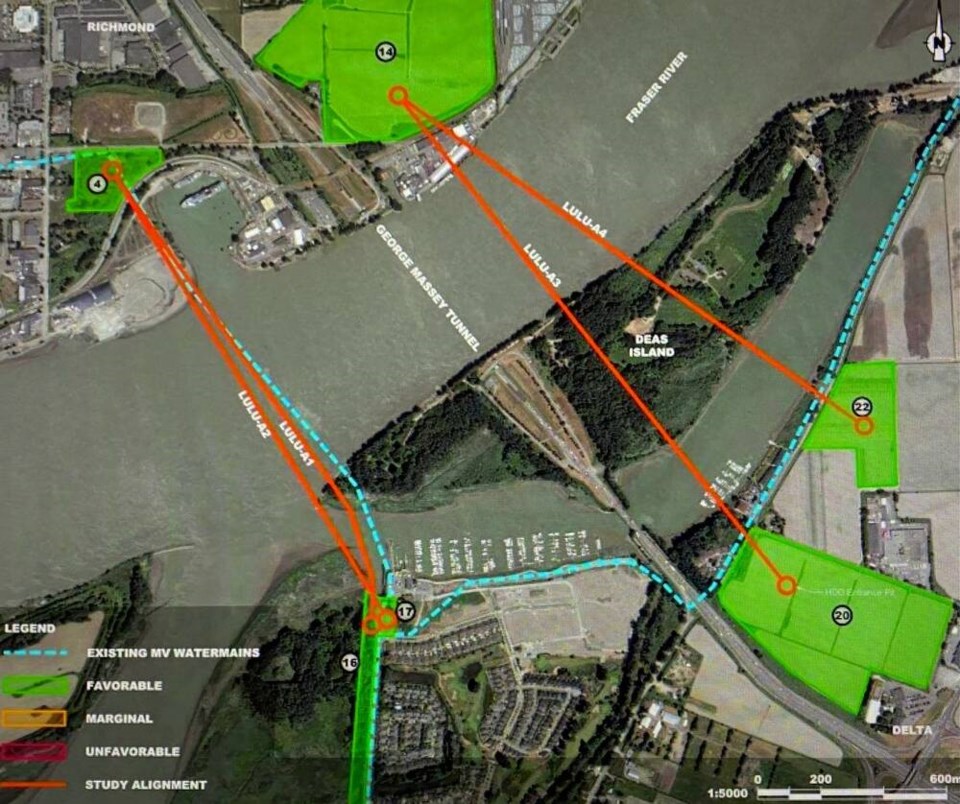Metro Vancouver is planning to build a new water supply tunnel to the City of Delta and Tsawwassen First Nation (TFN).
The Lulu‐Delta Water Supply Tunnel project is being undertaken as part of the region’s efforts to safeguard its water supply by replacing aging infrastructure.
The existing Lulu‐Delta crossing of the Fraser River, between the Cities of Richmond and Delta near the George Massey Tunnel, is a key water main crossing in the region that conveys drinking water from the Seymour Capilano Filtration Plant.
Built in 1963, the structure consists of a steel main located at a shallow depth beneath the bottom of the river.
A report to the Greater Vancouver Water District (GVWD) notes the structure has been identified for replacement due to previous damage from third‐party dredging activities along the Fraser River, which now limits the pressure capacity and operation of the main.
The report also outlined what is referred to as a “Stage Gate Framework” process for the project including advancing it to a so-called definition phase.
In 2018, Metro Vancouver retained a consulting firm to carry out the initiation phase (feasibility study) to assess options for a new river crossing to replace the existing crossing. That assessment identified four preliminary alignments for the definition phase. Those options along with potential new options will be assessed during the project definition.
As the design progresses through definition and into preliminary and detailed design, site‐specific investigations, testing and analyses will be conducted to confirm current assumptions, the report notes.
“At this time, key anticipated project risks identified for the Definition phase include the availability of land for tunnel shaft sites, and potential construction conflicts with the BC Ministry of Transportation and Infrastructure’s (the Ministry) Fraser River Tunnel project. During project Definition these risks will be assessed and inform decision‐making through shaft site selection followed by land acquisition prior to the commencement of Preliminary Design. Metro Vancouver staff have, and will continue to, communicate and coordinate with the Ministry on the timing and logistics of the Fraser River Tunnel project to reduce risk and optimize any schedule conflicts,” the report adds.
The detailed design phase is to start in early 2029 with construction scheduled to begin in early 2032. The project is to be completed by 2037.
Meanwhile, the regional district is also planning to replace the existing Cambie‐Richmond Water Supply Tunnel, which conveys water to the Cities of Richmond and Delta, as well as TFN.
The definition phase, or conceptual design phase, for that project was completed in late 2022. Metro Vancouver subsequently short‐listed three design engineering firms to participate in a preliminary design request for proposals.
Subject to GVWD Board approval, the project is expected to begin the preliminary design in mid‐2024.




